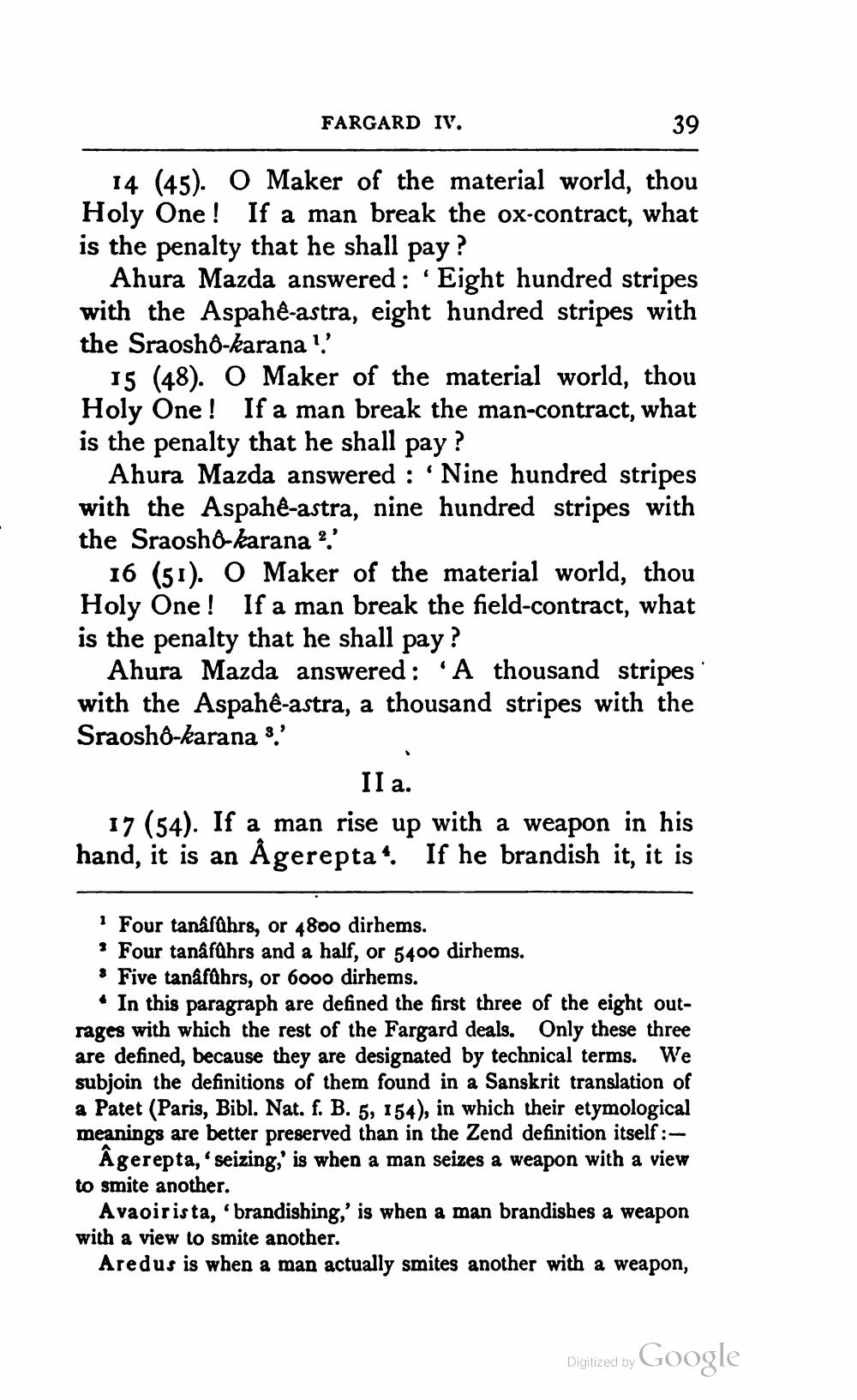________________
FARGARD IV.
39
14 (45). O Maker of the material world, thou Holy One! If a man break the ox-contract, what is the penalty that he shall pay ?
Ahura Mazda answered: 'Eight hundred stripes with the Aspahê-astra, eight hundred stripes with the Sraoshô-karana'
15 (48). O Maker of the material world, thou Holy One! If a man break the man-contract, what is the penalty that he shall pay ?
Ahura Mazda answered : Nine hundred stripes with the Aspahe-astra, nine hundred stripes with the Sraosho-karana ?
16 (51). O Maker of the material world, thou Holy One! If a man break the field-contract, what is the penalty that he shall pay?
Ahura Mazda answered: 'A thousand stripes with the Aspahê-astra, a thousand stripes with the Sraoshô-karana 3.'
II a.
17 (54). If a man rise up with a weapon in his hand, it is an Ågerepta. If he brandish it, it is
· Four tanárdhrs, or 4800 dirhems. * Four tanafdhrs and a half, or 5400 dirhems. * Five tanafQhrs, or 6000 dirhems.
. In this paragraph are defined the first three of the eight outrages with which the rest of the Fargard deals. Only these three are defined, because they are designated by technical terms. We subjoin the definitions of them found in a Sanskrit translation of a Patet (Paris, Bibl. Nat. f. B. 5, 154), in which their etymological meanings are better preserved than in the Zend definition itself:
Âgerepta,“ seizing,' is when a man seizes a weapon with a view to smite another.
Avaoirista, 'brandishing,' is when a man brandishes a weapon with a view to smite another.
Aredus is when a man actually smites another with a weapon,
Digitized by
Digitized by Google




